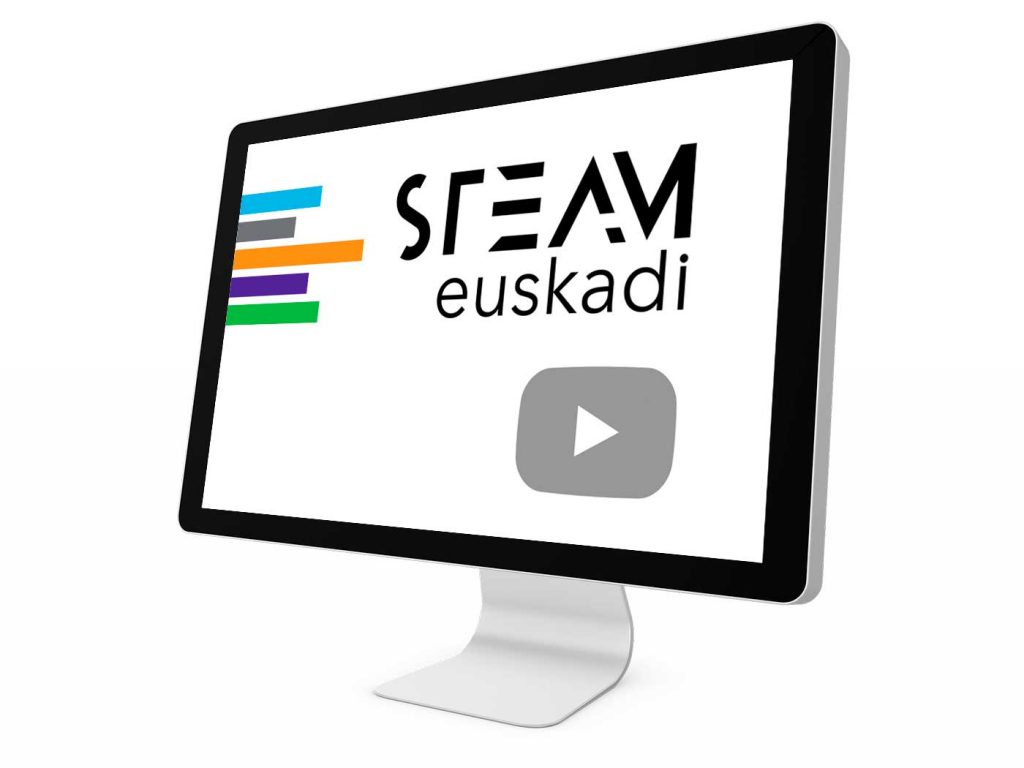Jornadas de orientación STEM
Institution
Gobierno Vasco
Institution Typology
Other
Country
Spain
Stakeholders involved
-Teachers
-STEAM Professionals
-Students
Summary
The STEAM orientation sessions aim to inspire the next generation of professionals through events that connect relevant sectors with secondary school students. A key aspect of their development is highlighting the wide range of career paths and opportunities within the sector, while also engaging students with fun, hands-on activities.
CONTEXT AND OBJECTIVES
Problem addressed or learning needs
The initiative addresses the need to break stereotypes that distort young people's perception of what it means to work in STEAM and coding fields, by enabling direct interaction with professionals from various sectors and projects.
Types of enhanced competences
Many skills are developed during the sessions, but to summarise some of the core ones:
- Raising students’ awareness of STEAM subjects and related career opportunities
- Fostering teamwork through group dynamics
-Challenging stereotypes associated with STEAM fields
METHODS, STRATEGIES AND TOOLS
Subjects involved
Humanities, Technologies\Engineering, Math
Duration and timeline of implementation
As a public initiative led by a regional government, the direct reach and impact of the project is limited to the community in which it has been developed. However, it has the advantage of being a programme that could be rolled out in other regions, follo
Strategies and activities
As covered in other sections of this report, the session activities vary depending on the speaker or organisation delivering them. Thanks to this flexibility, the initiative has achieved a blend of different formats that enriches its offer to schools considering participation.
Material Sources
The tools used by professionals vary depending on the session, but may include presentations, gamified activities, team-based work, etc. This flexibility is one of the strengths of the initiative, allowing professionals to focus on the elements they find most appropriate and impactful.
Methodology
Team Work, Cooperative Learning, Storytelling, Case Studies, Digital Storytelling
IMPACT AND RESULTS
Impact
As the initiative is still relatively new, there is no definitive data on its impact through its various communication channels. Nevertheless, at the time of writing, around 13 sessions have already been carried out.
Observed Benefits
Beyond the development of specific skills linked to individual sessions, the main benefit of the project lies in its ability to inspire career aspirations through a methodology that showcases possible future paths to participating students.
Challenges Faced
A challenge the initiative likely faced was engaging schools—often overwhelmed with educational offers—in the programme. However, thanks to the support of local government dissemination channels and a clear, informative platform, the project has been able to overcome this potential obstacle.
LESSONS LEARNT AND RECOMMENDATIONS
Key Success Factors
One of the initiative’s key strengths is its digital platform, which offers all necessary information in an easy-to-access and user-friendly format for interested schools. This forms part of a broader dissemination strategy that ensures the success of the sessions, as well as the effective communication of their key messages.
Future Improvements
From the open availability of information in accessible formats to the connection between industry professionals and students, there are countless aspects that could be adopted by future initiatives. However, if only one had to be highlighted, it would be the focus on inspiring future vocations by challenging the widespread misconceptions and stereotypes surrounding STEAM subjects and coding on a global level.
Recommendations
One recommendation for future initiatives would be to seek public support from relevant authorities in order to promote and highlight the value of STEAM subjects clearly and decisively. Additionally, delivering the sessions in both Basque and Spanish offers different avenues for reaching diverse audiences, ensuring that no group is excluded due to language, which is crucial for maximising impact.

